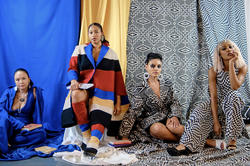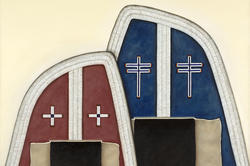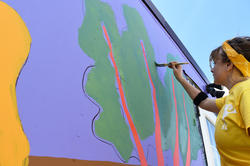Korina Emmerich and Liana Shewey of NYC incubator Relative Arts participate in ongoing Indigenous and First Nations Artist Series.
RISD Textiles Class Brings Students Face to Face with Hard Historical Truths
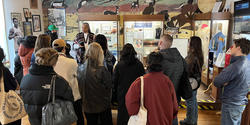
“In all of the traditions we are covering in this course, I am trying to drive home the idea that we should understand the hard truths behind the production of textiles,” says RISD Museum curator Kate Irvin, “and the ways that the complex histories of these materials have also been turned into a form of joy, identity, strength and resistance.”
Students enrolled in Irvin’s Textiles course, Many Hands, Many Voices: Textile Histories and Entanglements, are exploring such concepts via visiting artists and experts, gaining first-hand experience with the RISD Museum’s collection and a field trip to the Tomaquag Museum in Exeter, RI.
“In textiles, there is no substitute for hands-on, tactile experience,” says grad student Julian Suver MFA 23 TX. “It’s interesting to learn about the histories of the pieces, but to be able to interact with them brings one’s understanding to a new level.”
The course began with a series of public lectures by visiting artists at the RISD Museum. Laura Anderson Barbata delivered a talk about the socially engaged work she creates through her lens as a Mexican-born artist, and Sharbreon Plummer discussed Gee’s Bend quiltmakers—and specifically the RISD Museum’s Nine-Patch Quilt (ca. 1955) by Ruth Pettway Mosely—through a Black feminist lens. Plummer also partook in a panel discussion with alum Hera Ford 20 TX and Assistant Professor of Textiles Siena Smith 18 TX about Plummer’s recent publication, Diasporic Threads: Black Women, Fibre & Textiles, and Ford and Smith’s contemporary textile-focused work.
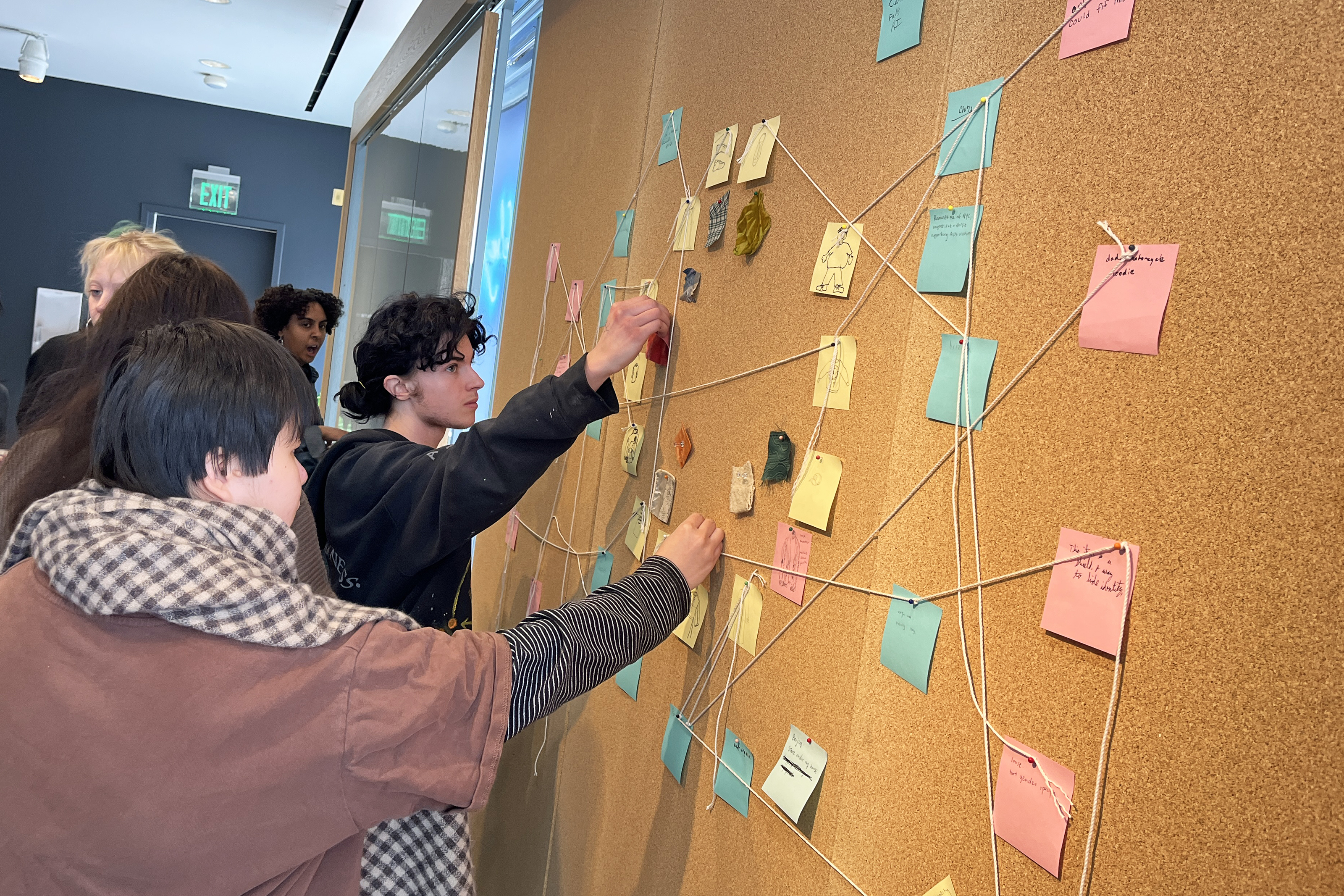
“We have been breaking down barriers by hearing some really fascinating stories that you normally never get to learn about in traditional art history classes.”
“Kate actually gifted me Dr. Plummer’s zine for my first gallery show outside of RISD over the summer,” says Natiana Alexandra Fonseca 23 TX, the class teaching assistant. “I have been referencing it within my degree project throughout the entire year.” Fonseca first met Irvin while taking her 2020 Wintersession course focused on natural dyes and textile practices in Oaxaca, Mexico. After interning at Souls Grown Deep in 2022, Fonseca continued working in the museum's Costume & Textiles department as a work-study student.
“When I see works like these, I see the beauty, I see the intention,” says Plummer of Mosely’s piece, “but I also see the community, the tethering and the dedication to supporting one another as Black women.” In her lecture, the artist stressed the importance of prioritizing the intimate stories behind the work and the joy that lived alongside the challenges they faced. She also cautioned listeners against “interrogating these stories in ways that center the white, Eurocentric gaze.”
Harsha Kejriwal MFA 23 TX was inspired by the pride, joy and sense of ownership that Plummer and other guest speakers like Tomaquag Museum Assistant Director Silvermoon LaRose exuded. “This class has impacted me deeply and changed the way I think of myself as a maker,” she explains. “It’s making me more conscious of the fact that I am a Brown person in a white community [like] these strong women who shared their beautiful works and expertise.”
Kejriwal’s thesis focuses on large scale-textiles and immersive spaces. “As a weaver, I take pride in my work,” she says. “I want to be able to do everything on the loom with minimum intervention to the fabric, cutting and sewing as little as possible. The fabric should be enough to give an experience to the viewer on a larger scale.”
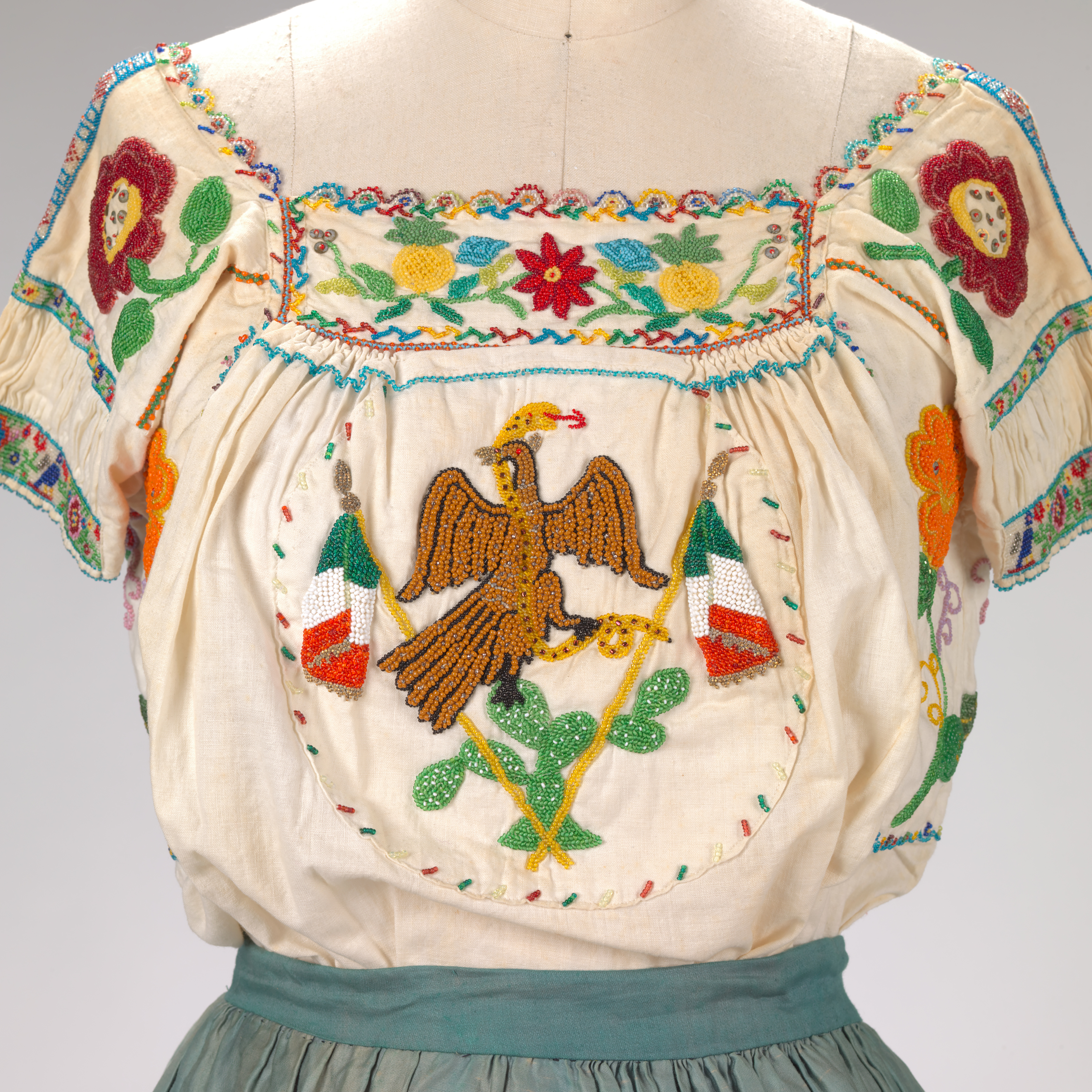
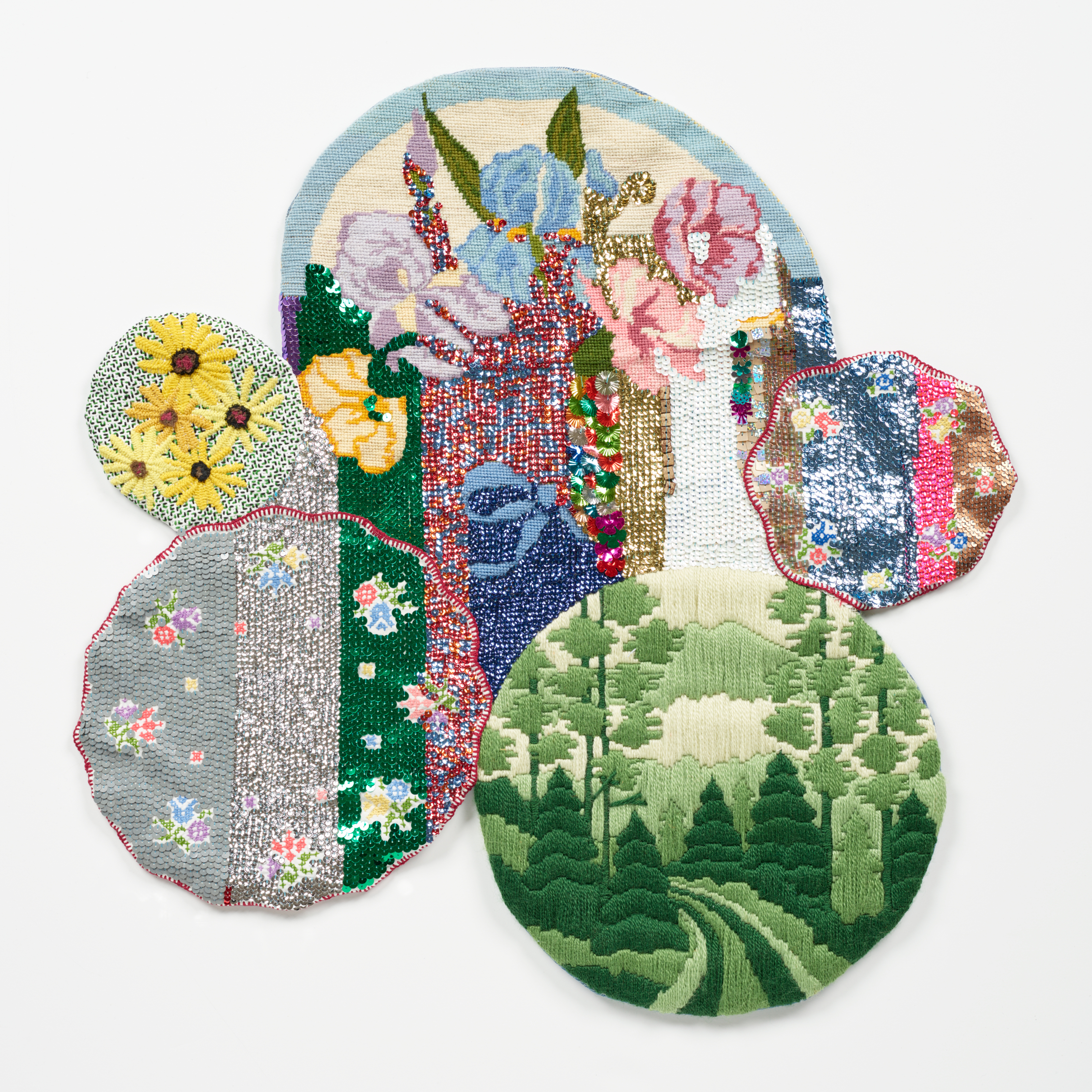
Also working within large-scale textiles is Christopher Beaudoin 24 TX, whose work is centered around sculptural textile installations. For his final project, Beaudoin is exploring the evolution of gay culture through the works of Larry Krone and other queer artists who speak to the isolation and discrimination that Beaudoin faces as a gay artist.
“Once I shared my topic with Kate, she exploded and pulled all these garments and textiles for me by people like myself that I hadn’t seen before,” he says. “I’m going to be finding vintage crocheted doilies and appliqueing underwear to re-create the lived experiences I have gone through.” Beaudoin notes that underwear and his lived experience as a gay man are both deeply personal and concealed from most people.
“We have been breaking down barriers by hearing some really fascinating stories that you normally never get to learn about in traditional art history classes,” says Beaudoin. “That is what’s so powerful about this class. It’s a breath of fresh air that Kate has brought to all of us.”
—Isabel Roberts
May 11, 2023
